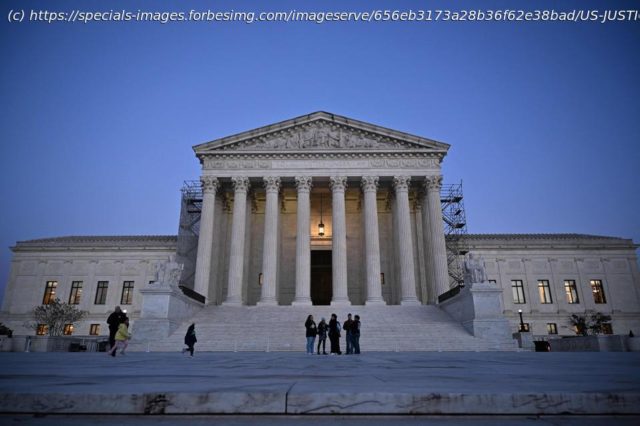The Supreme Court will hear oral arguments in Moore v. U.S. The case centers on a 2017 provision that requires companies to pay tax on previously untaxed foreign profits.
All eyes will be on the Supreme Court on Tuesday, Dec. 5, 2023, as oral arguments are presented in Moore v. United States. The case centers on a 2017 Tax Cuts and Jobs Act provision that requires companies to pay tax on previously untaxed foreign profits.Facts
The petitioners, Charles and Kathleen Moore, own a 13% stake in an Indian corporation, KisanKraft Machine Tools Private Limited.
In 2018, the Moores learned that they were subject to a mandatory repatriation tax, or MRT, under the 2017 tax reform law (sometimes referred to as the Tax Cuts and Jobs Act, or TCJA). They had never paid tax on their earnings because previous tax law allowed income earned abroad to remain deferred until it was repatriated—they had never claimed their earnings. Under the new law, the Moores were subject to tax going back to their original investment at a 15.5% tax rate—netting them a tax bill of $14,729.
The Moores paid the tax and sued for a refund, claiming the tax is unconstitutional.
(You can read more about the facts of the case and the MRT in my previous article here.)Question in Moore
Several articles have been written about what the Supreme Court will address in Moore. As noted on the docket, the question presented is simply: Whether the Sixteenth Amendment authorizes Congress to tax unrealized sums without apportionment among the states.Moores’ Arguments
The Moores argue that the MRT violates the Constitution’s apportionment requirements because it taxes them on ownership of personal property—their KisanKraft shares—and not on income they had realized or received.
They further argue that the Sixteenth Amendment refers to the ordinary meaning of income that typically requires realizing a gain. The lower court’s decision, they claim, is at odds with historical decisions that have found the Sixteenth Amendment’s exemption from apportionment to be limited to taxes on realized gains.
And importantly for tax policy, they allude to a suggested wealth tax being touted by the White House and some in Congress as another example of an unconstitutional tax on unrealized gains.Others Weigh In
These arguments feel like bigger questions than simply whether the MRT is constitutional, which may explain why everyone from taxpayers to tax professors to tax pundits have weighed in—dozens of amicus briefs have been submitted in favor of and opposed to the arguments made in Moore.
When cases like this attract additional attention, those with interest or expertise in the subject, but aren’t a party to the litigation, may also file briefs to explain their point of view. It generally happens where matters of public interest are at stake. These briefs are called amicus briefs or, since we lawyers love Latin so much, amicus curiae. It means, literally, “friend of the court.”
Those who have submitted an amicus brief include George A. Callas, who helped develop section 965 (central to the case) as Senior Tax Counsel for former Speaker of the House of Representatives Paul Ryan, and Mindy Herzfeld, a professor of tax practice at the University of Florida Levin College of Law.
Home
United States
USA — Science Supreme Court Will Hear Case That Could Upend The Current Tax System






